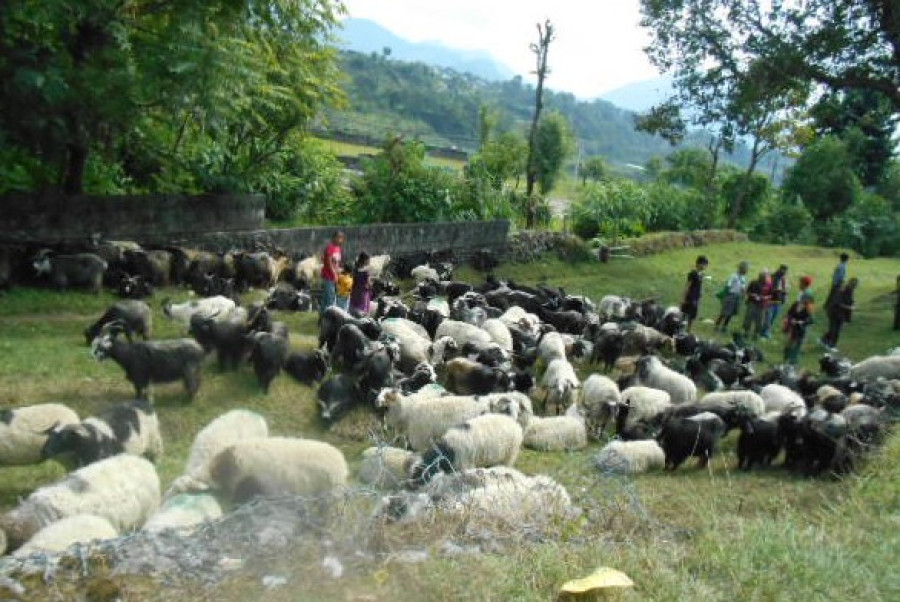Money
Viral disease affecting goats and sheep spreads to Humla
After Bajura, Peste des petits ruminants (PPR)—a contagious viral disease affecting goats and sheep—has spread to Humla.
Jay Bahadur Rokaya
After Bajura, Peste des petits ruminants (PPR)—a contagious viral disease affecting goats and sheep—has spread to Humla.
More than 1,800 goats and sheep have died in Humla so far, while the toll has crossed 3,000 in Bajura over the past one and half months, according to the District Livestock Services Office. The office said Lali, Jair, Rodikot, Gothi and Kharpunath VDCs in the southern part of Humla are most affected.
The disease has been rapidly spreading across Mid- and Far-West regions and hundreds of farmers who have been eking out a living by rearing goats and sheep have been hit hard.
Ram Chandra Buda, a local of Gothi, said government-deployed veterinarians have not been able to control the disease. “Livestock officials and veterinarians have reached a number of villages, but the disease is still out of control,” he said.
Krishna Bahadur Rokaya, officiating chief of the livestock office, said the office has requested for vaccines from the Directorate of Livestock and Animal Health Services in Kathmandu. “Technicians have already been deployed in affected villages,” he said.
According to the Food and Agriculture Organization of the United Nations, PPR is a severe, fast-spreading disease of mainly domestic small ruminants.
It is characterised by the sudden onset of depression, fever, discharges from the eyes and nose, sores in the mouth, disturbed breathing and cough, foul-smelling diarrhoea and death.
There are no medicines to treat the disease, but preventive treatment may decrease the mortality rate. And, the preventive vaccine can only be administered to an animal free of the infection.
“If goats and sheep that have contracted the disease are vaccinated, chances of immediate death are high,” said Rokaya. “Farmers have been forcing our technicians to vaccinate sick animals, leading to deaths.”
Rearing goats and sheep for meat and wool is a traditional occupation of the people in Humla. The animals are also one of the means of transportation in Humla. According to District Agriculture Development Office, the farmers have reared around 75,000 goats and sheep.
PPR was first reported in Ivory Coast in 1942, where it was called Kata (pidgin for Catarrh), according to reports. In 2007, China reported the first case of PPR.




 20.53°C Kathmandu
20.53°C Kathmandu















